
Cuisine
Kurdish cuisine
Kurdish cuisine is characterized by its use of fresh ingredients and simple cooking techniques. The cuisine is also known for its use of lamb, chicken, and beef. Kurdish cuisine is typically spicy and flavorful, with dishes that are often slow-cooked to bring out the flavors of the ingredients. The cuisine is a reflection of the region's rich history and culture, and is a testament to the resilience of its people.
Typical ingredients
Lamb, Chicken, Beef, Rice, Lentils, Chickpeas, Tomatoes, Onions, Garlic, Ginger, Cumin, Coriander, Turmeric, Cardamom, Saffron, Fenugreek, Chili peppers
Presentation and garnishing
Kurdish dishes are often presented in large communal platters, with diners using bread to scoop up the stews and sauces. The cuisine is also known for its use of garnishes, such as fresh herbs and spices, to add flavor and color to the dishes.
Kurdish cuisine is a testament to the region's rich cultural heritage and resilience. Despite the challenges faced by the Kurdish people, their cuisine remains a source of pride and joy.
History
Kurdish cuisine has a long and rich history that dates back to ancient times. The cuisine has been influenced by the various cultures that have inhabited the region over the centuries, including the Persians, Ottomans, and Arabs. Kurdish cuisine is also influenced by the region's Islamic heritage, which prohibits the consumption of pork and alcohol. The cuisine is a reflection of the region's diverse cultural heritage, and is a testament to the resilience of its people.
Cultural significance
Kurdish cuisine is an important part of the region's cultural heritage. It is often served during special occasions and celebrations, and is a way for Kurds to connect with their cultural roots. The cuisine is also an important part of the region's social fabric, and is often shared with friends and family.
Health benefits and considerations
Kurdish cuisine is generally healthy, as it is based on fresh ingredients and simple cooking techniques. The cuisine is also known for its use of yogurt, which has many health benefits. However, some dishes may be high in fat and calories, so it is important to consume them in moderation.
Kurdish cuisine recipes Browse all »
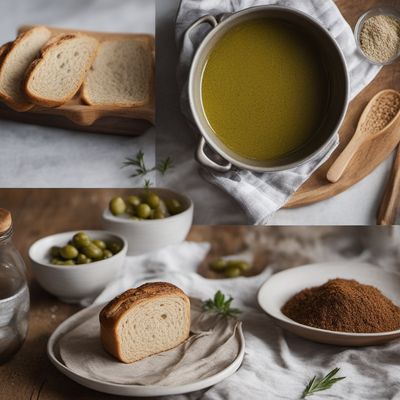
Kurdish Olive Oil Bread
Zesty Olive Oil Bread: A Kurdish Delight

Kurdish-Inspired Village Salad
Zesty Kurdish Village Salad: A Burst of Freshness from the Mountains

Kurdish-Style Serabi
Savory Pancakes with Kurdish Flair
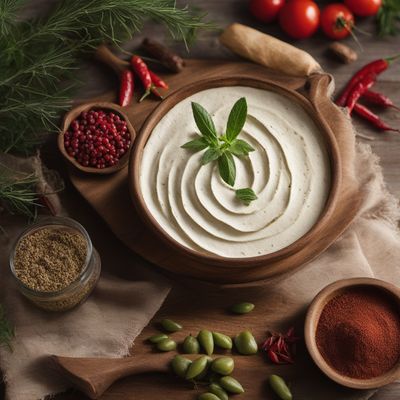
Kurdish-style Semmel
Savory Kurdish Bread Rolls: A Delicious Twist on Semmel

Kurdish-Inspired Vannkringler
Saffron-Scented Kurdish Vannkringler: A Delightful Fusion of Norwegian and Kurdish Flavors

Kurdish Carabaccia: A Flavorful Twist on a Classic Italian Dish
Saffron-infused Kurdish Onion Soup: A Hearty Delight

Huckabuck with a Kurdish Twist
Spiced Pumpkin Pancakes with a Kurdish Flair
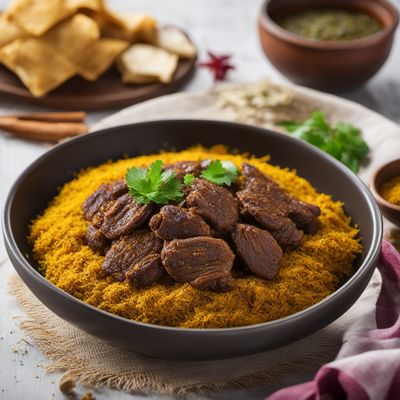
Kurdish Cincin with Spiced Lamb
Savory Delight: Kurdish Cincin Infused with Spiced Lamb
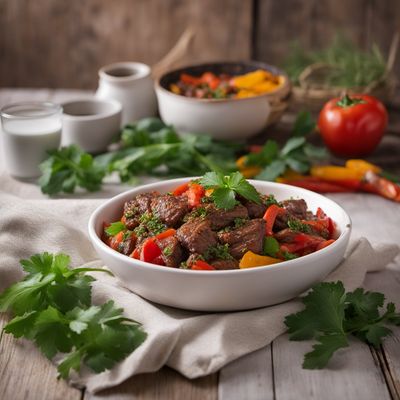
Ulpershek with a Kurdish Twist
Savory Kurdish Ulpershek: A Delightful Fusion of Flavors
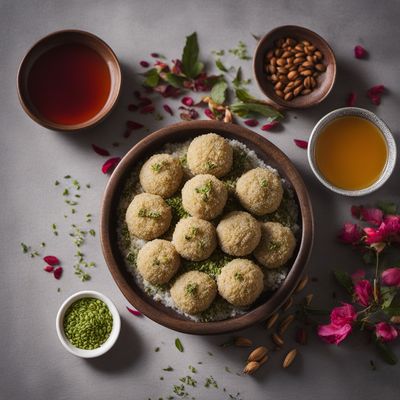
Kurdish-style Sweet Rice Balls
Delightful Kurdish Rice Delicacies
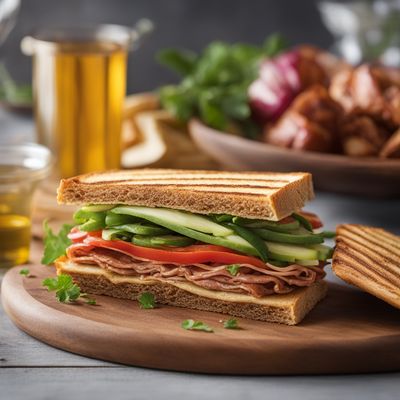
Kurdish-style Tortilla Sandwich
Savory Kurdish Tortilla Delight

Kurdish-inspired Chutoro Nigiri Sushi
Savor the Fusion: Kurdish-inspired Chutoro Nigiri Sushi